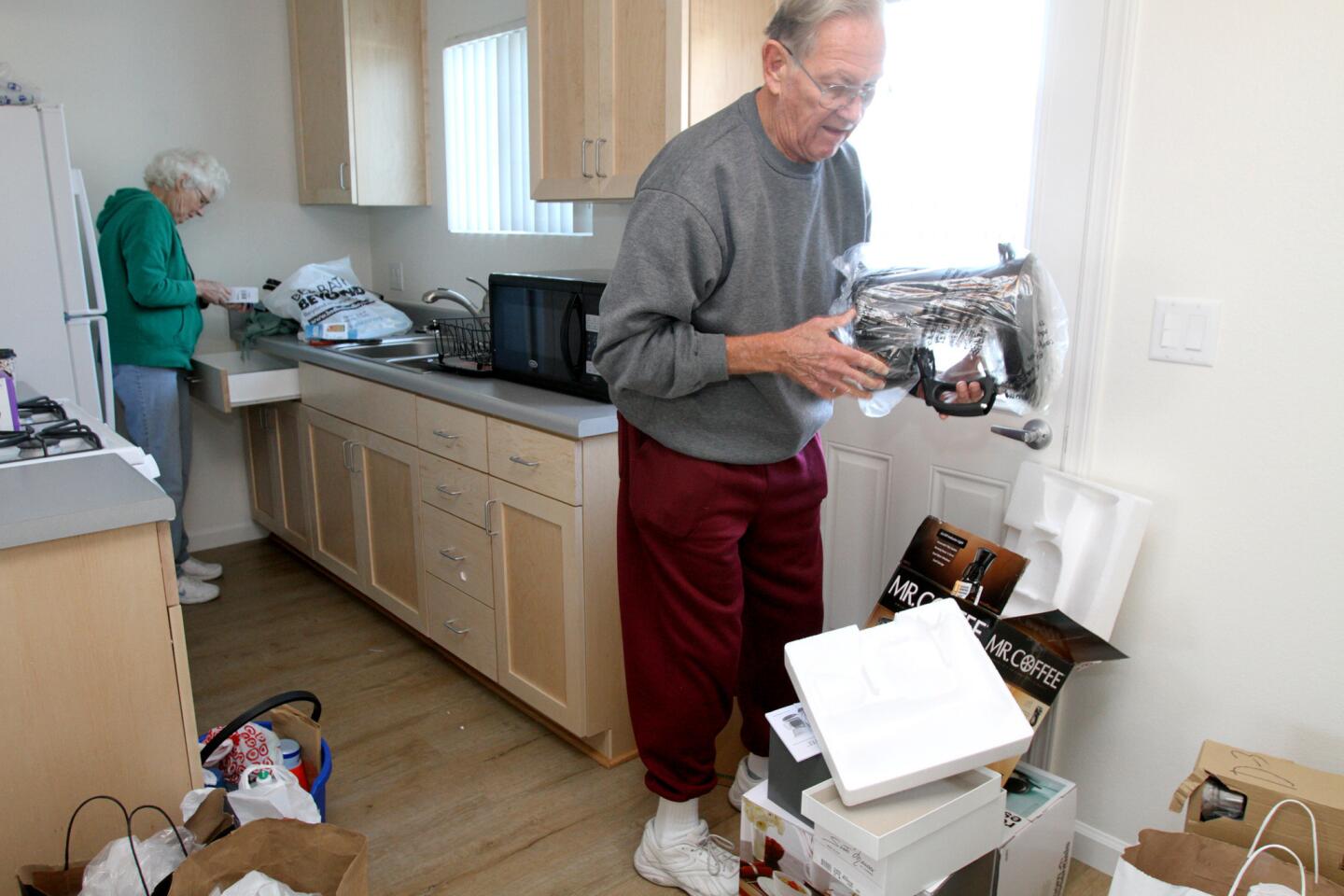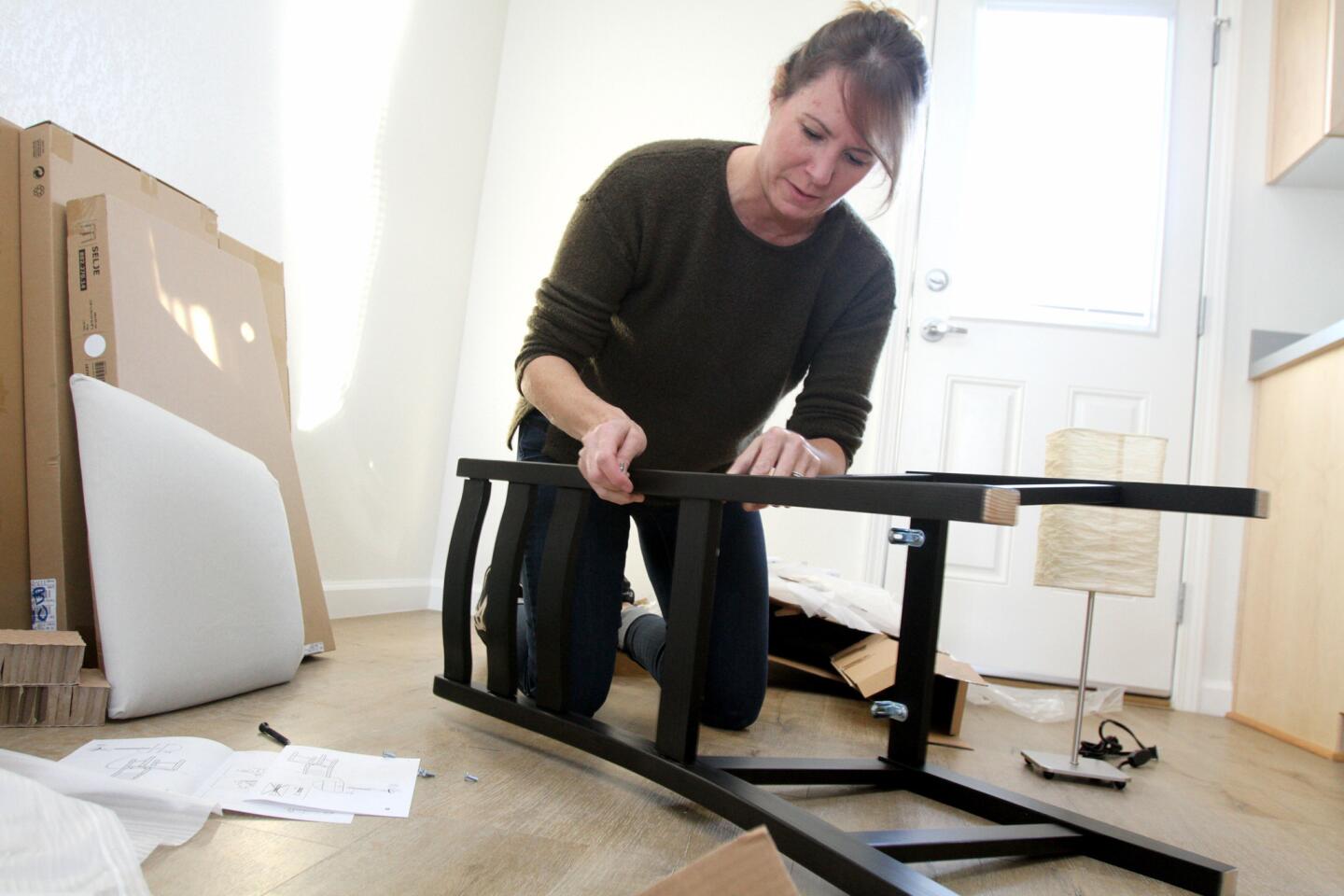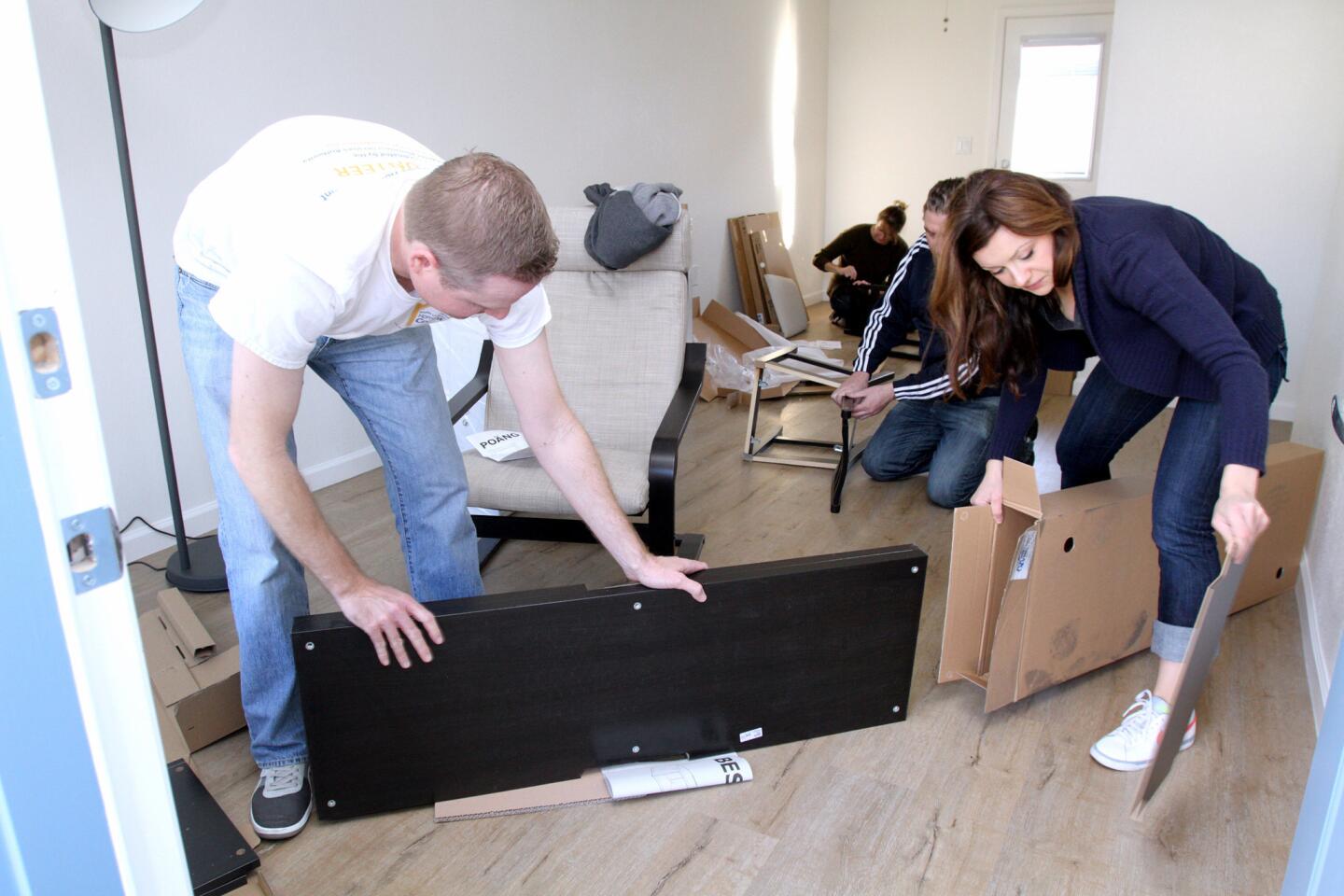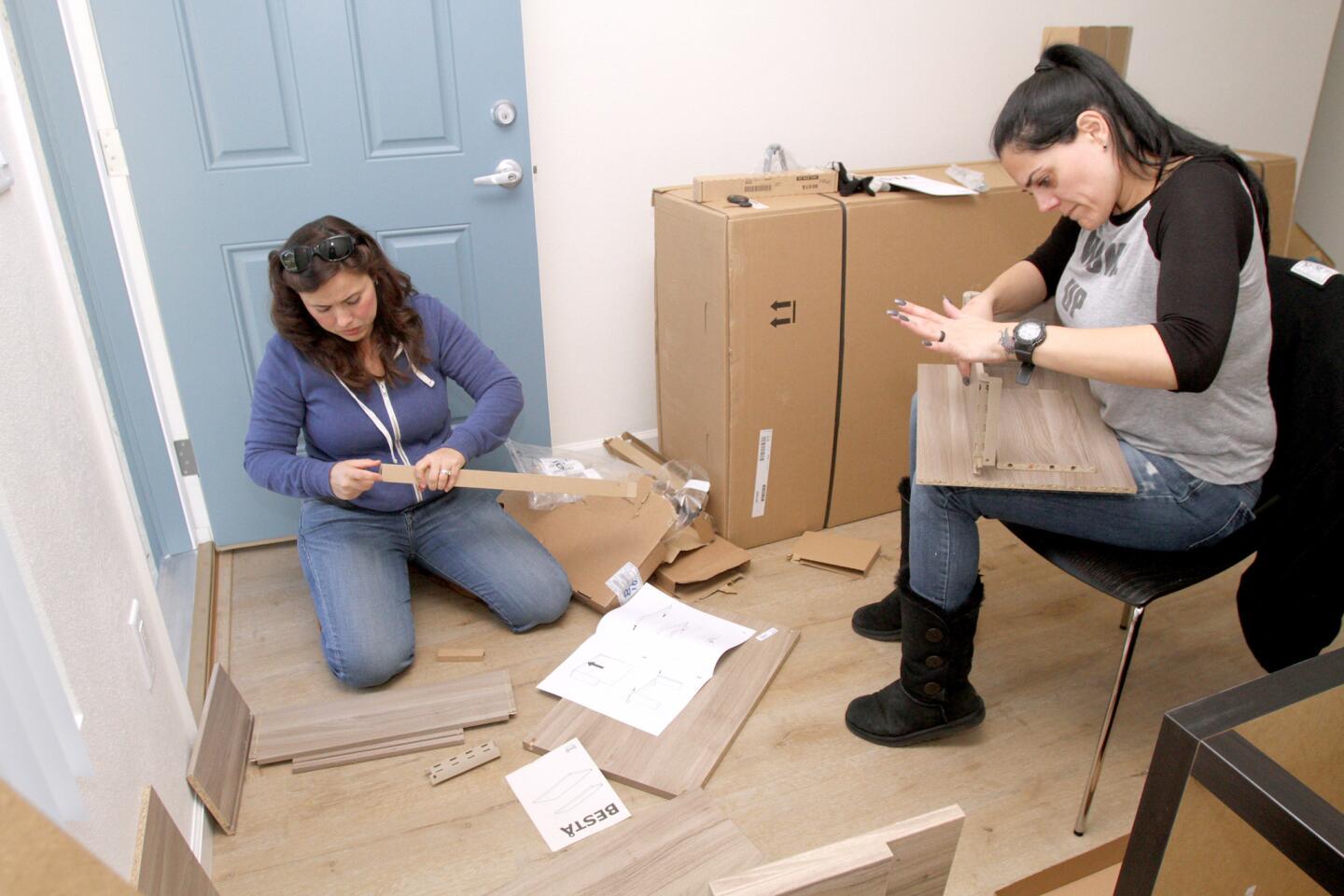Doors to open on veterans housing project in Burbank
- Share via
Volunteers put together furniture and installed housewares and linens over the weekend at a new housing project for homeless veterans at the corner of West Verdugo and West Angeleno avenues, placing the finishing touches on a project years in the making.
The nonprofit Burbank Housing Corp. began rehabilitating the 11-unit residential property this summer as part of a $3-million project funded through a combination of loans and more than $1.5 million in city funds.
The project was approved in 2013, but work to fulfill requirements related to a state loan and overcome “regulatory hurdles” delayed progress until July.
Rents could range from roughly $400 to $1,000, depending on household incomes, according to documents submitted with the original proposal for the project in 2013. Veterans will be able to stay in the supportive housing facility for as long as they want, providing they meet certain requirements and continue to pay rent.
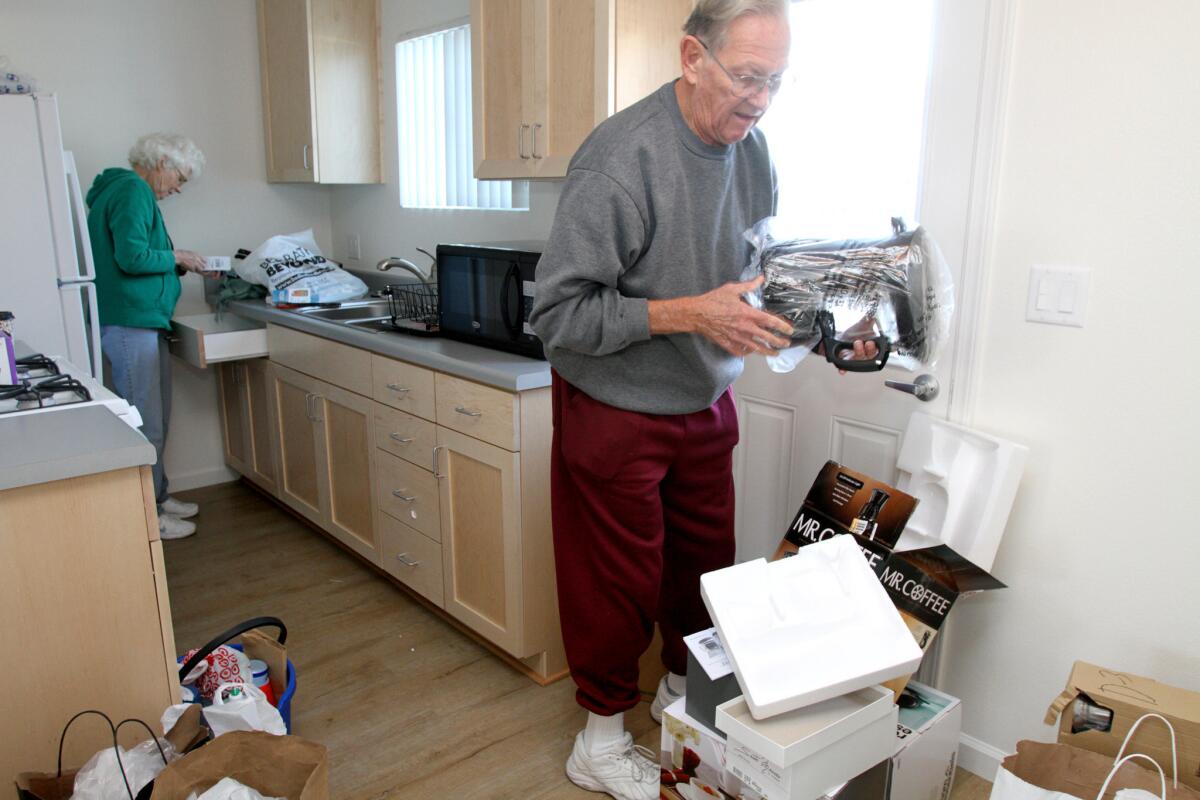
Judy and John Pawlek of the Burbank First United Methodist Church install housewares and linens, including a microwave oven and a coffee maker, in one of the bungalows at a homeless veterans housing project on Verdugo Ave. in Burbank on Saturday, Dec. 19, 2015.
The City Council over the summer supported a $300,000 boost in project funding made possible by delays that allowed the city to accumulate more housing funds. This allowed the nonprofit housing developer to make an additional unit fully accessible and compliant with the Americans with Disabilities Act, for a total of two accessible units.
Judith Arandes, executive director of the nonprofit, said she would give council members a tour of the facility this week because they won’t have an opportunity to view it once the units are occupied.
A dedication is planned for January.
One supporter of the project who left her mark, but will not see the project reach completion, is Kathy Sanks, who died earlier this month. Sanks, who was president of the Burbank Advisory Council on Disabilities and a member of the housing corporation board, helped to ensure accessibility of the apartments.
“She actually went in and worked with the housing corporation to make sure that two of those apartments are fully accessible and the others are somewhat accessible,” said Janet Diel, a member of the advisory council, during a recent City Council meeting. “Her heart and soul were dedicated to making Burbank accessible.”
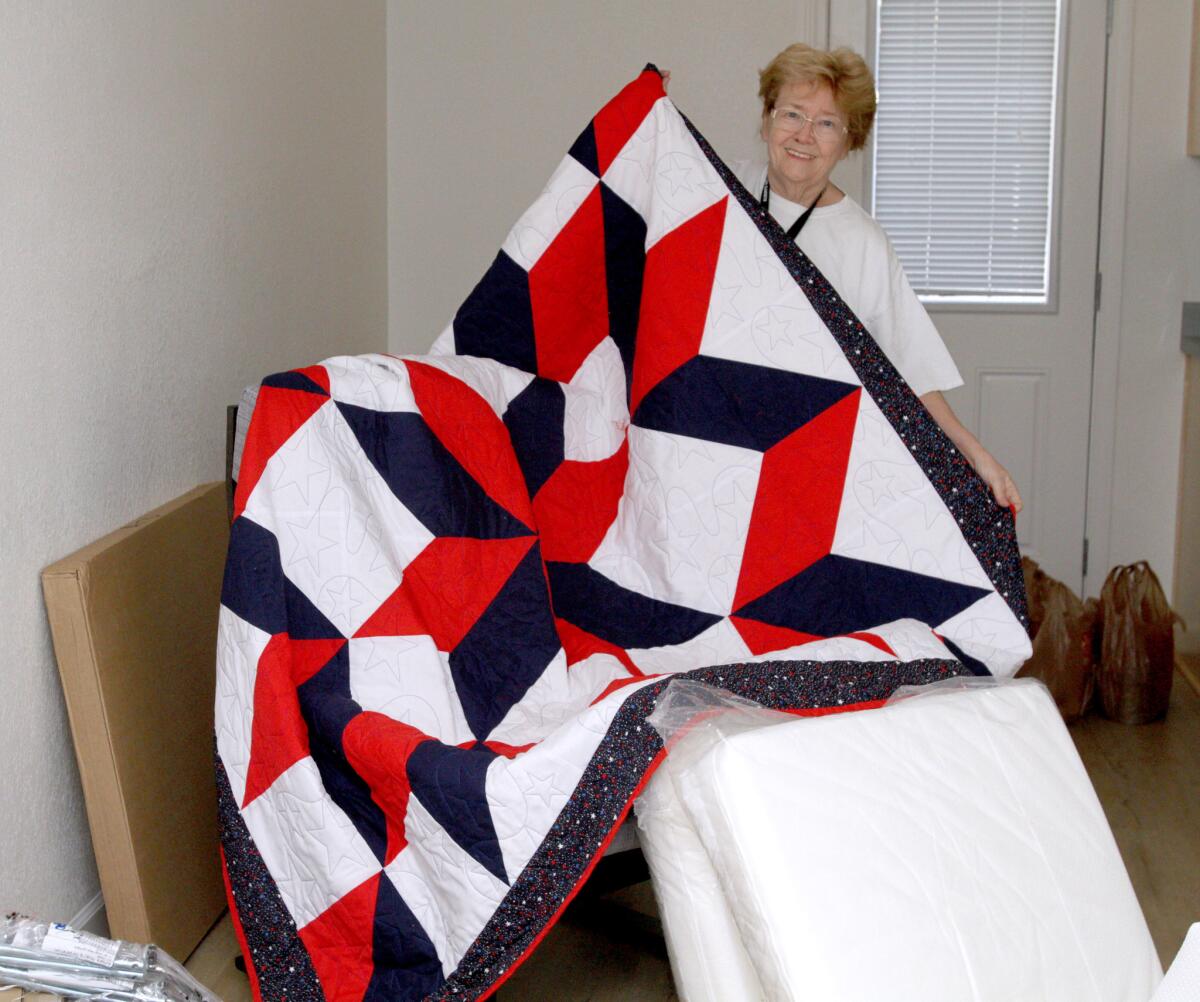
Shirley Pratt of the Foothill Civitan Club of Burbank made a quilt for one of the bungalows at a homeless veterans housing project on Verdugo Ave. in Burbank on Saturday, Dec. 19, 2015.
Officials were hoping to move residents in before the holidays, but last week Arandes said they probably won’t be placed in the units until after the New Year, adding that locating potential tenants has been a challenge.
“This is a new process for us,” Arandes said. “It’s a new population.”
In July, Milo Peinemann, senior director of housing and public policy for the Los Angeles-based nonprofit New Directions for Veterans Inc., which is conducting the intake and selection of tenants, said 90% to 95% of the veterans the nonprofit serves are still in apartments a year after placement.
“We have a strong staff,” Peinemann said. “We know what we’re doing and do it well.”
The nonprofit, founded in 1992 by two homeless Vietnam veterans, serves more than 350 permanent supportive housing units countywide, he said.
Case workers are having to go out and find the veterans, Arandes said, adding that “it’s not like they have a cellphone.”
--
Chad Garland, chad.garland@latimes.com
Twitter: @chadgarland

